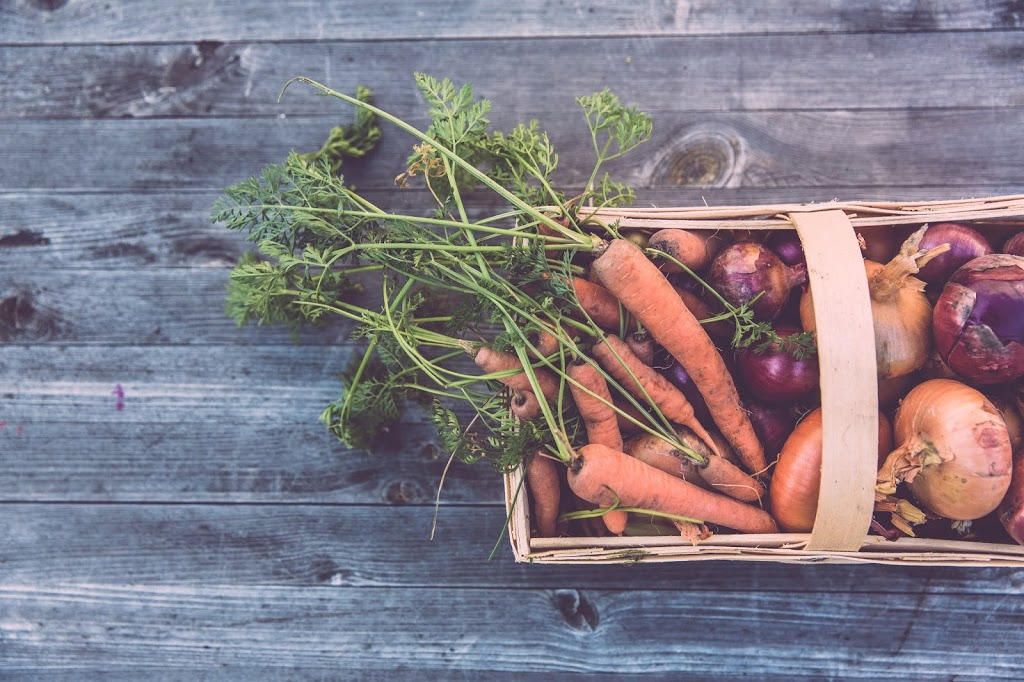How to Eat More Sustainably
- Categories:
- Food

Eat more plants, including vegetables, beans and nuts
The first step to eating more sustainably is to increase your intake of plants, including vegetables, fruits, beans and nuts, and to eat a wider variety of these foods. Farming the same plants en masse is bad for the environment and, according to the WWF, 75% of the world’s food supply comes from just 12 plants (and five animal species). Considering how many options there are when it comes to vegetables, legumes, fruit and nuts, we could quite easily expand our diet beyond our usual staples.
Limit your meat and dairy intake
As well as eating more plants, we should also all be looking to limit how much meat and dairy we consume. We don’t need to all go vegan to make a difference but, in the UK, we should be aiming to eat 70% less meat and dairy by 2030.
The land and resources needed to sustain meat and dairy farms are colossal and we could be eating the plants ourselves that are grown to feed animals for slaughter. All the practices involved in meat farming create the equivalent amount of greenhouse gas emissions as all the cars, trucks, and airplanes in the world.
Avoid food waste by carefully planning and only buying what you need
Food waste is a huge drain on the planet’s resources, with 30% of the food produced being wasted. In order to eat more sustainably, we must waste less. The first step to reducing your waste is to plan your meals and food shop carefully so that you’re only buying what you need, including unpackaged produce. Freeze anything you can whilst it’s fresh and then you won’t have to worry about missing expiration or best-by dates.
Try to buy food that meets certain standards and certifications
Another way to eat more sustainably is to look for food that has certifications from trusted organisations such as Fairtrade, RSPCA Assured, Marine Stewardship Council (MSC), Aquaculture Stewardship Council (ASC) and Roundtable on Sustainable Palm Oil (RSPO).
For example, many people have tried to eschew palm oil because of the well-documented effect on wildlife such as orangutans. However, palm oil alternatives can actually be more harmful to the environment, so products containing RSPO certified sustainable palm oil could be a better option.
Avoid processed foods and cook from scratch where possible
Processed foods often contain too much sugar, sodium and fat, and are bad for our health. In addition to this, mass processed food production is very energy-intensive and harmful for the environment, as well as these products often being packaged in non-recyclable materials. Cooking with raw ingredients where possible is better for our health and for the planet.
Avoid plastic
In order to eat more sustainably, we must look at how our food is packaged. A staple of a more environmentally-friendly lifestyle is to reduce the use of plastic and our food is often over-packaged in non-recyclable packaging. As well as opting for loose produce rather than pre-packaged and looking for food in recyclable containers, make sure to always take your own bags to the supermarket and make use of refillable products wherever possible.
Eat food that is in season
Eating food that is in season means you will be experiencing it at its best. In-season food is riper, more flavourful, and easier to harvest and transport. But how does eating seasonally help the environment? As well as having higher transport costs, when produce is grown out of season it is more likely to need intensive farming methods and an increased use of pollutants like pesticides, whereas in-season food can grow without much interference.
One final way we can eat more sustainably is to eat locally grown food where possible or, if you can, grow your own – it will save you money and can be a fun and rewarding experience.
Eat food that has been grown locally (or grow your own!)
As we know, transportation accounts for a significant amount of our man-made greenhouse gas emissions, but it isn’t just our personal transportation we are responsible for. When food has to be shipped or flown from far away, it comes with a carbon cost.
Therefore, one final way we can eat more sustainably is to eat locally grown food where possible or, if you can, grow your own – it will save you money and can be a fun and rewarding experience.
Hopefully, this has given you a good idea of how you can start to eat more sustainably. You don’t have to make all of these changes overnight, but a few steps in the right direction can help to make a difference.
If you’d like to know more, WWF are committed to helping campaigns that focus on food sustainability. You can help to support their fantastic work by using SearchScene, our charitable search engine that donates 95% of profits to a selection of renowned international charities including WWF.
This article first appeared on Blogspot.










